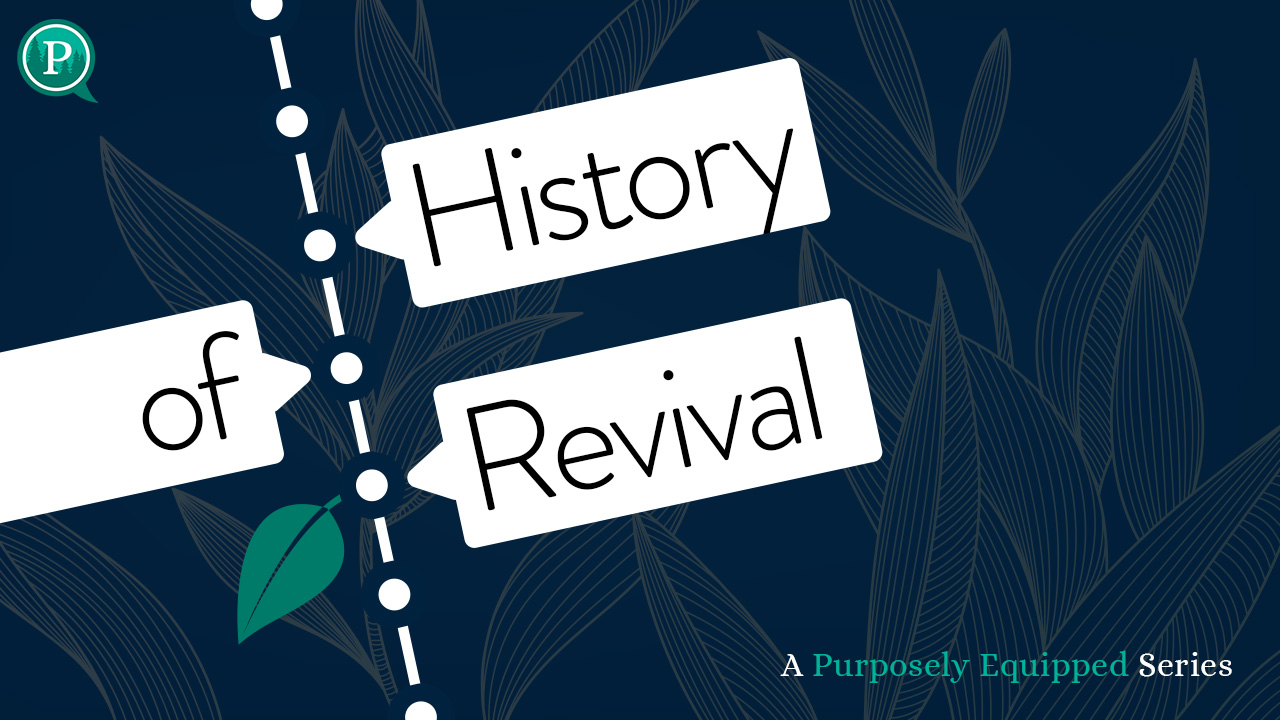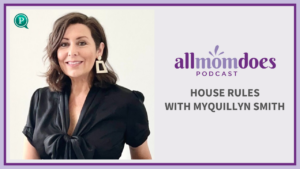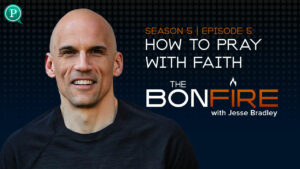Pastor Alec Rowlands joins Mark Holland to discuss the History of Revival. What is it? What isn’t it? And how does God use it to change people and society for the better? Listen to Part 1 of the conversation.
Show Notes:
Book: England Before and After Wesley: The Evangelical Revival and Social Reform
Transcription:
Purposely your life, God’s purpose. Listen at onpurposely.com.
Mark Holland:
A History of Revival. In studio, a very special guest, a pastor we’ve had on a number of times through the years. And actually even talking about this subject kind of around the edges, as he discusses Church Awakening, an outreach that he founded a number of years ago. But we have in studio, pastor Alec Rowlands of Westgate Chapel. Hi, pastor Alec.
Alec Rowlands:
Hi Mark. Thank you for having me in the studio today.
Mark Holland:
Good to see you. You just were busy last night at church. I wasn’t sure if you’d want to come in on a Monday to record, but this is a subject that you love to talk about. And that’s revival. What it is, what it isn’t. I kind of wanted to talk about it because I, I’ve mentioned before we went on the air, I have a background with Youth with a Mission, and it was a subject I remember a guy by the name of Winkie Pratney did a history of revival that just really excited me. All the kind of a history. I like history anyway. Church history, but the way God uses revival to change not only people but societies for the better. And we’ll maybe touch on a little bit of the first grade awakening, the second grade awakening. But you wanted to first of all start by telling us a little bit about what you think revival is, foundationally. What is revival? We think of revival as a revival meeting or come out this Sunday for a revival meeting. But it’s really a lot more than that.
Alec Rowlands:
It really is Mark. And I think some of my understanding of revival has been gleaned down through the years, not only by the books that I’ve read and the people who I’ve heard on the subject, but also by personal experience. And I don’t mean that to sound arrogant, but I grew up in my father’s church in South Africa. And when I was nine years old, we entered into a season that, now in hindsight, can only be described as revival. People got saved almost every Sunday. We were having baptismal services every month. There were a few, not many, but a few dramatic healings during that period of time. And it was still going on when I left to come to this country at the age of 17. So I’ve experienced some of it. And then as a pastor in Cedar Rapids, Iowa, we experienced seven years of really continuous awakening after I devoted myself to prayer, and repented to the congregation for being a prayerless senior pastor. So, I say that just to set context for your audience, that some of my understanding comes from books, but also from my own personal experience. And I hear people today talking about revival. I’m glad that there’s more talk about it today than there’s been in the last 50 years, I think ,because of the urgent circumstances in our nation. More people are talking about it. And so I’d like to start with the definition. I hear people saying, well, we’ll have repentance, we’ll have revival as soon as there’s repentance or we need evangelism. When we have evangelism, we’ll get revival. And I just want to shout “No, no, no!” to all of that, because really my experience and what the textbooks teach us is that revival, and here’s the definition that your audience can find on the churchawakening.com website if they’re interested in further study:
Revival is the overwhelming sense of God’s presence.
And I want to just pause there with that phrase for a moment. Because, because it is the presence of God. And to go back to what I said a moment ago, you don’t have repentance. People are not interested in repentance. Their hearts are not ready for genuine… I’m talking about genuine grief over our sin, and that we’ve grieved God by our sinfulness. That doesn’t come unless we have this encounter with God that is almost tangible. The presence of God comes in a meeting or in our lives privately when we’re at a terrible moment, and we’re looking for some answers and we begin seeking God and suddenly His presence fills our study or our bedroom or our car. It’s the presence of God that falls. And when revival comes to a church or a region, or sometimes even a nation, historically, it’s that overwhelming sense of God’s presence. One lady I interviewed in the Isle of Lewis in Scotland who experienced the 1949 Hebrides Island revival. I asked her, besides what was happening in all the churches, what was it like in, what was life generally in the islands for people who weren’t coming to Christ? And she said, oh, Alec. She said, it was like a canopy of God consciousness that covered the region. So people cleaned up their people who were foulmouthed, cleaned up their language without anybody telling them to. People who told dirty jokes, stopped doing it. Just in general. That’s even with people who never came to Christ. But this awareness of God, it’s God’s presence. That’s what we’ve got to hunger for. Because genuinely Mark, revival is God. It’s not… Sometimes we confuse the fruit of revival, the results of revival with revival. But revival is just people so desperate and hungry for God that he hears our cries, he sees the desperateness of our hearts. And like he responded when Israel was in slavery and exodus, and began to cry out to him. And he said to Moses, I’ve heard the cries of the people.
Mark Holland:
Yeah. I must admit, I sometimes think of the fruits of revival more. That’s what I’m desiring more. Because I want, I’m so concerned about our country, about our world. But I think more, just as I’ve gotten older, I’m just so concerned about the direction of the country. And I can tell it’s not really a political answer. It’s a spiritual answer that we need, and the fruits of that, changing societal wrongs. But it’s got to be the other way around. You’ve got to seek God first.
For me, I know a real personal time of revival in my life, ironically came when I was under real spiritual attack. Even at this radio station, I was being kind of hounded by a witch of all things, me and another dj. And that made me, and all of a sudden the real sense of real spiritual attack, demon attack, made me myself go, boy, I need to get close to God because I’m not going to make it otherwise. YSo there was this sense of, I need to repent and get all the sin out of my life. I can’t face this without him.
Alec Rowlands:
Yeah. There’s an urgency, isn’t it when it comes to that?
Mark Holland:
So that’s how it worked for me in a personal revival.
Alec Rowlands:
So lemme go back to the definition if I can. Right. Okay. So revival is the overwhelming sense of God’s presence. It has to be overwhelming, I believe, because right now our agendas in every local body of believers are so well set that we can do church with him or without him. We’ve got it figured out. We know how to do it. We know how to market. We know how to preach, we know… fill in the gap. And so it has to be overwhelming because for God to have his way in the Church, capital C Church, our agendas have to be pushed aside. And the overwhelming sense of God’s presence in historical revivals pushes people’s agenda aside. So it’s the overwhelming sense of God’s presence. And then to continue with the definition that falls powerfully on a Christian people who’ve become dead and lethargic in their spiritual lives.
So it’s the church that needs revival. It’s Christians. The word reviving, it actually means bringing back to life something that had life but now is dead. And in my opinion, and I don’t mean this to sound judgmental, Mark, it’s certainly, that certainly is descriptive of much of the church of Jesus in America today. They’ve lost a sense of urgency. They’ve lost a sense of passion. They’ve lost a sense of authenticity in God’s Word, in obedience to God’s Word. It’s just the church is in a mess. And the, it’s the rea. We’re the reason the church, the country’s in ms. It’s not the Democrats or the Republicans. The church is the reason that America’s in mess. So we need reviving. So it falls, this powerful sense of God’s presence falls under Christian people who’ve become dead and lethargic in their Christian lives. And then this is the part of the definition I like the most, “Restoring to life those things God intended to be normal for the Christian life.” And I like that part of the definition, not because it’s my own, but I like that part of the definition because, and a lot of times in America when we have had an overwhelming outpouring of God’s spirit, we’ve focused on the abnormal, on the paranormal. We’ve made that the center of attraction. And so, people have gravitated to those kind of outlandish…
Mark Holland:
The holy roller idea.
Alec Rowlands:
Yeah. Yeah. I mean, that does happen when revival comes. But like John Wesley wrote to Daniel Rowlands and Wales when he said, “My brother, those manifestations must be kept under control lest the name of Christ come into ill repute.” But we focus on them. We major on those things. And the true revivalists of the 18th century in the first great awakening, minimized those things and got them off center stage, so that God was left on center stage. And so when you ask, Well, then what does God intend to be normal? You got to go to the Book of Acts to find out what God intends to be normal for his church.
Mark Holland:
What was normal in the Book of Acts? It seems like miracles, though. Were normal.
Alec Rowlands:
Yes, yes. No, those things do happen. But in the characteristics of revival that I have studied historically, I think there are a number of things that suddenly come to life. And the first is that the fear of the Lord, among believers, results in deep conviction of sin and repentance. And that’s what happened in my dad’s church in South Africa. Suddenly the altars, even during worship, people, my brother who walked away from the Lord in the middle of the revival in my dad’s church, that went on for years, and he’d been in rebellion against the Lord away from home. We didn’t know where he was. Right? And in the middle of a worship service, Lawrence, my brother came, I was about 12 years old, came running down the aisle in the middle of worship, fell on the altar, on the altar carpet in front of the pulpit, and began to weep his way back in repentance.
So the presence of God, the first thing it does, it is it brings the fear of the Lord back. Secondly, worship suddenly comes spontaneous and alive. It doesn’t have to be platform driven. People come ready to worship. One farmer in Scotland, in the Heberdes Island told me that before the revival, they sang Psalms only acapella and then Gaelic. And he said, but after the revival, they sang the same Psalms acapella. So nothing changed mechanically. But he said, suddenly these songs became like a fire that went through you. So worship becomes alive. The Word of God comes alive among believers, and resulting in renewed obedience. A new love for one another, erupts in the church, resulting in relationships being restored in the body of Christ. All revive, all revived believers begin exercising their gifts of ministry. So everybody’s deployed inside and outside the church. Authentic and corporate personal prayer is revived. And lastly, revived believers become a powerful witness, and unbelievers are strikingly converted. So that’s the, that’s in my opinion…
Mark Holland:
That sounds like the Book of Acts.
Alec Rowlands:
It’s born out in the book of Acts and in history books on revival, that this is what happens when God gets hold of a cold, indifferent Christian and turns his heart ablaze for righteousness.
Mark Holland:
Well, that helps us to make sure that we keep the first things first, the main things, the main thing. It’s about reviving the church. What I wanted to also though do with this discussion is maybe do a little high point of some of the things that changed societally because of revivals. And looking, we’ve heard of the term, the first great awakening. Was the first great awakening primarily in America, or was that America and Britain going on at the same time? And this is like 1700’s, 1600’s.
Alec Rowlands:
A as I understand it, mid 1700’s, as I understand it, and I am open to correction, it really started in New England under the ministry of a pastor named Jonathan Edwards. And he immediately began publishing some sort of circular letters that made their way to England. And George Whitfield and John Wesley and Charles Wesley,
Mark Holland:
They were British.
Alec Rowlands:
they were British, began reading those reports, and it elicited a hunger in them. And field preaching started under George Whitfield because the Church of England was in such deplorable condition that they refused true evangelical preaching. And so, these men had to resort to fields. In fact, Howell Harris, an Irish revivalist during this time, had to stand on his father’s gravestone to preach, because you purchased, each family purchased their burial plots, and the people were gathering at the church. And the church refused Howell Harris to preach inside the church. So he went in the graveyard and stood on his father’s.
Mark Holland:
Now, why would the church be refusing this kind of preaching?
Alec Rowlands:
Because the church was in, Mark, the church was in worse condition than it is in America today. One historian described a famous British preacher of this period of saying that he had so little passion that he left the impression that the real man had vanished from the pulpit, and all that was left was a wig and a gown. And so the church, when you read the book, one of my favorite books, England, England, Before and after Wesley. When you read what was going on in England, in the church in particular, pre the first grade awakening, it was way worse than what we have now. There were no lights, burning lights on the horizon. Unlike what you have in the states right now where you have prayer movements and churches literally dotted all over. They may be isolated, and they may not be the biggest or most flourishing churches in America, but there are places all over America right now where pastors and congregations, or calling on God in prayer meetings. And there’s a desperation that is growing right now that gives me great hope for the future. But in England at this time, there were almost no lights.
Mark Holland:
No, literally no lights.
Alec Rowlands:
No, no. Literally.
Mark Holland:
So just the infrastructure of society was decrepit and out of it.
Alec Rowlands:
Yes, everything was in a mess. Prisons were horrible. People were being imprisoned for…
Mark Holland:
And there was stealing. A loaf bread…
Alec Rowlands:
There was mass drunkenness too. Oh, it was…
Mark Holland:
And child labor stuff going
Alec Rowlands:
Child. Kids were being forced into labor. Executions. One historian noted of this period, that historian, that executions hangings were so frequent that there was a prevalent saying that everyone was afraid the Navy would run out of rope, because of the rope being used to hang people. It was really… Slavery was prominent in the British em, throughout the British empire. It was just in every way you can imagine, England was in far worse condition, as the colonies were pre revival. A lot of people believe that the war independence in America only had traction because it was touched by the fruit of the first great awakening, which happened a decade or so before the first shots.
Mark Holland:
Yeah. I read that the first great awakening in very many ways led to the birth of America.
Alec Rowlands:
Yes. Yes. Absolutely. Yeah. And conditions in the state, in colonies were equally bad pre first grade awakening.
Mark Holland:
The seeds also of the abolition movement were begun at this time as well. t took a while, obviously, for it to come to full fruition in the mid 1800’s, but the beginnings of this was Wilberforce art of this time?
Alec Rowlands:
William Wilberforce was affected by Newton. And Newton was a direct fruit of the first great awakening. And so the fire of the first great awakening is traced politically in the UK to all kinds of social transformation.
Mark Holland:
Mention some of those. I mean, even Humane Society was started.
Alec Rowlands:
Was started
Mark Holland:
Hospitals,
Alec Rowlands:
Sunday schools, Sunday school were started, which actually became day schools for the education.
Mark Holland:
And John Wesley started that.
Alec Rowlands:
John Wesley started that.
Mark Holland:
Yeah. He was opposed to that. And kids can’t learn about God. That was the attitude.
Alec Rowlands:
Yep. And so child labor was abolished, prisons were reformed as a result of the first great awakening, the abolition movement gained traction. And like you said, it took a while in the UK, and took a little longer in America, for it to be abolished. But you can trace, all hospitals were built specifically for the poor, because in England, pre-first grade awakening, the poor had no access to healthcare. Only the wealthy could afford doctors and hospitals. So the poorer were excluded. And so, hospitals were built for the poor. Missions… The missions movement, the International Global Missions movement was birthed out of the first great awakening. I mean, this book England, before and after Wesley, the last third of the book is just packed with examples of the way that society was transformed, transformed. And the overarching conclusion of many historians is that the bloody revolution that happened in France, that cost,
Mark Holland:
Which was a secular rrevolution.
Alec Rowlands:
Yes, cost so many lives. And it was the same revolution, the seeds of that same bloody revolution, had already been sown in the UK. But the revolution, that kind of revolution was averted by the first great awakening. So, England was spared the decimation of the revolution, the bloody revolution. And France and Napoleon and all the atrocities that flowed out of all of that era, they were spared that because of the impact of the first grade awakening, and the heightening of a national consciousness to value the things that God values.
Mark Holland:
And that wraps part one of a History of Revival, this Purposely Equipped series featuring Pastor Alec Rowlands of Westgate Chapel in Edmonds. To find out more about the church, visit them online at westgatechapel.com. Please leave us a review of this message so more people can discover this podcast and find more episodes of Purposely Equipped at onpurposely.com.







